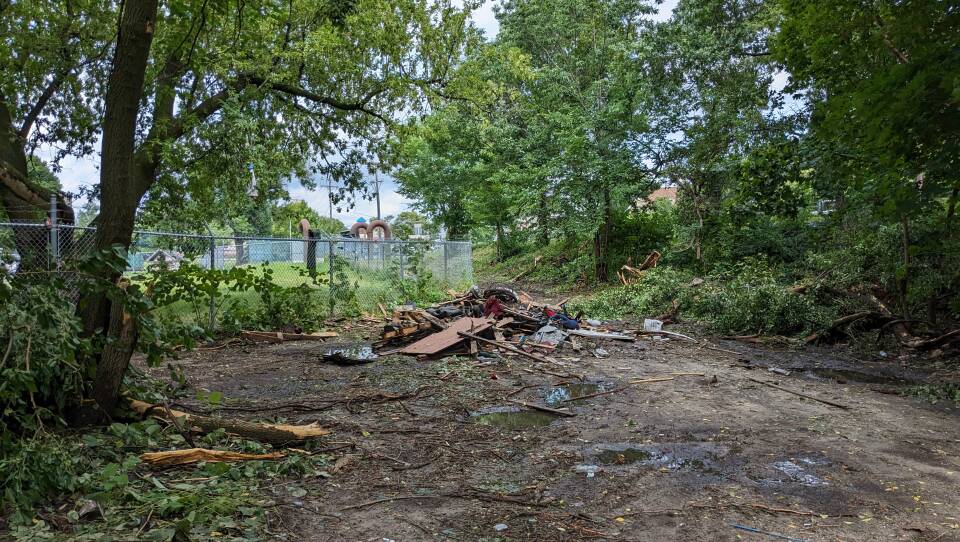Lowell City Council on Tuesday will discuss a handful of motions that would address how the city responds to people experiencing homelessness.
An increasing number of people experiencing homelessness have come to Lowell because the city offers more social services compared to its neighbors, said Marissa Dupont, a member of Lowell Solidarity, a local advocacy group. With over 200 unhoused people in the city, a number of encampments sprang up, prompting the city in January to begin clearing out a handful of encampments that had prompted residents’ complaints.
City officials and advocates have been trying to understand how to balance community concerns as the population of unhoused people has grown. However, the solutions are not that simple because of limited finances, neighborhood demands and cooperation from all parties.
Multiple motions addressing homelessness are on the agenda for tonight’s City Council meeting. Councilor Wayne Jenness filed a couple motions to increase policing in the Back Central neighborhood, where many people without housing gathered in the South Common Park after their encampments in other parts of the city were cleared out. In addition, Councilor Corey Robinson filed a motion to discuss finding a solution for “vagrancy, substance abuse, loitering issues” near St. John’s Episcopal Church, also in the Back Central neighborhood.
Robinson said St. John’s Church has experienced issues with individuals interrupting services and leaving human waste and needles. He said this is a “vagrancy problem as opposed to just being unhoused.”
“This particular motion is about working with this organization [the Church] within the community, to provide them assurance that the city is willing to step up and do what we can to kind of curb some of this impact that they are being faced with repeatedly.”
The city recently tore down an encampment located behind the Centralville Dog Park, displacing its residents across the city.
“They are all kind of just closing in on South Common because there’s nowhere else to go,” Dupont said.
Dupont said while drug use may be prevalent in this area, it does not “necessitate this huge police presence.” Rather, she said the city should hire more social workers to “respectfully and safely” offer support to people without homes.
Robinson said some police presence is appropriate, saying that’s necessary when unhoused people are committing crimes.
“We’re not looking for a criminal component to where you’re handcuffing people for asking for help,” Robinson said.
Jay Linnehan, president of the Greater Lowell Community Foundation, said more affordable housing is essential to mitigate the high cost of living in Lowell.
Linnehan said unhoused people don’t choose to be on the street, and with more subsidized housing they’d have the ability to get back on their feet.
“The world’s getting bigger and the housing stock’s getting smaller, and it’s a fundamental supply and demand issue,” Linnehan said. “We need more supply.”
One option for people experiencing homelessness are transitional housing programs that include a place to stay and access to social services but require people to follow rules, like maintaining sobriety. Robinson said some people aren’t willing to accept the terms of those programs.. He said those programs are an important tool in transitioning people into traditional homes.
“You can’t take someone that’s mentally ill, on substances, with health conditions, and put them in a house, and expect them to get back on their feet,” Robinson said.
Dupont said the city needs to focus on long term solutions, aside from policing and sweeping encampments, and said if you move these individuals out, they will just come back.
“We have to treat this whole situation with compassion, but we also have to take heed of the concerns of our residents, our neighbors, our business owners, everybody else,” Robinson said.







